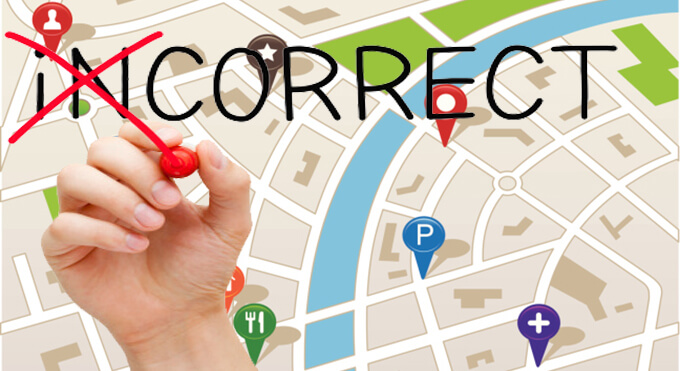The 5 Most Common Local SEO Mistakes that are Hurting Your Business
Many local marketers are basically clueless about SEO, and it’s not entirely their fault. With Google constantly changing the rules of website optimization an average of 600 times per year, and deliberately withholding details of the SEO factors that are used to determine ranking position, it’s no wonder that businesses continue to struggle with getting their websites ranked in the search engine results.
Local search relevance is critically important to the success of marketers regardless of niche or company size for the simple reason that local is where the customers are.
- An estimated 74 percent of Internet users conduct local searches. This works out to over 7 billion searches each month.
- 43 percent of all Google searches are for local terms.
- Half of all searches made on a mobile device are to find a local business, and 61 percent of those searches will result in a purchase.
It’s hard enough to make sense of effective SEO practices that will get your web pages ranked without running afoul of Google’s current accepted standards; you don’t need to sabotage your efforts by making a common local SEO mistake that could have been avoided with a little effort on your part.
Don’t Skimp on Home Page Content
Your home page is typically the first page that most search users and search engine robots will see, and it’s important to make that first impression a good one. Create compelling copy that tells a complete story about your company that readers will want to read and that the search engines will be able to see and index. While video slideshows are a highly effective way to communicate, they’re simply no substitute for quality writing that sells.
Create a “Google My Business” Page
If you do nothing else in the social media arena, be sure to claim your “Google My Business” listing, and get it optimized with high-quality relevant photos and a complete description of your product or service offering. Google frequently uses profile information to match local search queries with the most relevant local results, and if your information isn’t readily available you’ll miss out on valuable local search traffic.
Keep Your Contact Information Updated and Consistent Across the Web
Make sure that your business name and contact information is up-to-date and absolutely consistent down to the last comma across all of your various web properties such as review sites, local directory listings, and local citations. The smallest inconsistency can cause confusion among search engines and directories, which may cost you visitor traffic to your website.
Include Your Business Name and City in Page Title Tags
Many local market webmasters are still relying on ineffective title tags such as “services” or “home” that do absolutely nothing to inform others of what your site is all about. Add a descriptive keyword phase along with your business name and the city you operate from to each of your page titles.
Add Local and Niche-relevant Inbound Links to Your Inner Pages
Quality inbound links to your web pages remain one of the best ways of convincing Google that your site is relevant and worthy of being included in local search results. A great starting point for your link building efforts include authority sources such as local news and other media outlets, and your local Chamber of Commerce, as well as niche-related local trade and professional associations.










